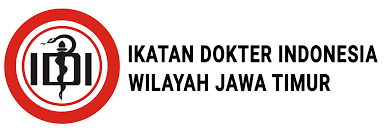PUBLICATION ETHICS AND MALPRACTICE STATEMENT
This journal follows the Committee of Publication Ethics (COPE) guidelines and requests authors to familarise themselves with these guidelines at: http://publicationethics.org/resources/guidelines. A few issues that authors need to pay particular attention to are set out below. It is ethically questionable to break up or segment data from a single study to create different papers for publication, a practice called salami slicinga. If the authors have legitimate reasons for reporting separately on different parts of the same study, or the same data set, they should justify that to the editor at the time of submission. Equally, readers need to be aware that different aspects of the same study are being reported, thus the methods section of the submitted manuscript must clearly explain why the submitted paper is justified.
This journal adheres to the rules of the Committee on Publication Ethics (COPE) and the International Committee for Medical Journal Editors (ICMJE) in dealing with all elements of publishing ethics, particularly how to address situations of research and publication misconduct.
All research must be conducted in accordance with high ethical standards and must adhere to local legislation and norms in order to receive examination and approval. The study described in your article must have been carried out in line with The World Medical Association's Code of Ethics (Declaration of Helsinki) for human studies and EC Directive 86/609/EEC for animal research.
Asian Journal of Health Research adapts COPE to meet a high-quality standard of ethics for publisher, editors, authors, and reviewers. As an essential issue, publication ethics needs to be explained clearly to improve the quality of the research worldwide. In this part, we explain the standard for editors, authors, and reviewers. In addition, the publisher doesn't have right to interfere with the integrity of the contents and only support to publish in a timely manner.
For Editors
- Every manuscript published in Asian Journal of Health Research should be reviewed by an editor.
- Editors should assist authors in adhering to the ICMJE guidelines for authors.
- In making the final decision, the editors may consult with other editors or reviewers.
- An editor must analyse each article objectively for publication, judging its merit without regard to the writers' nationality, ethnicity, political beliefs, race, religion, gender, seniority, or institutional affiliation. When there is a potential for a conflict of interest, he/she should decline the task.
- Editors must guarantee that the document given to the reviewer does not contain the author's information, and vice versa.
- Authors should be informed of the editors' decision, along with reviewers' comments, unless they contain rude or libellous remarks.Editors should respect requests from authors that an individual should not review the submission if these are well-reasoned and practicable.
- Editors and other staff should ensure that the submitted manuscript is kept secret.
- If there is suspected wrongdoing or contested authorship, editors shall be led by COPE flowcharts.
For Reviewers
- Reviewers must provide feedback on ethical issues as well as potential research and publication misconduct.
- Reviewers will finish the work in a timely way and should contact the editor if they are unable to do so.
- Reviewers must maintain the manuscript's anonymity.
- Reviewers should decline to assess articles in which they have a potential conflict of interest with any of the authors.
For Authors
- The author(s) confirm that the material has not been previously published and that they have not transferred any rights to the article to anybody else.
- The author(s) must guarantee that their work is original and that they have correctly cited others' work in accordance with the references format.
- The author(s) should avoid plagiarism and self-plagiarism.
- The publication of 'Salami' in Asian Journal of Health Research is strictly prohibited.
- Author(s) should ensure that they follow the ICMJE authorship requirements, as specified in the Asian Journal of Health Research author instructions.The author(s) haven’t suggested any personal information that may make the identity of the patient recognizable in any forms of description part, photograph or pedigree. When the photographs of the patient were essential and indispensable as scientific information, the author(s) have received the consent in written form and have clearly stated it.
- In the case of human experimentation, the authors have certified that the study procedure adheres to the Helsinki Declaration's ethical criteria, as well as the domestic and international committees that oversee human experimentation. If there are any uncertainties about whether the research was conducted in compliance with the declaration, the authors should explain why. In the case of animal experiments, the authors have certified that they followed all domestic and foreign guidelines for animal experiments in a laboratory.
- If there are concerns of data falsification or fabrication, the author(s) should provide the editor with the data and specifics of the study.Authors of the journal should clarify everything that may cause a conflict of interests such as work, research expenses, consultant expenses, and intellectual property on the document of ICMJE form disclosure.







































